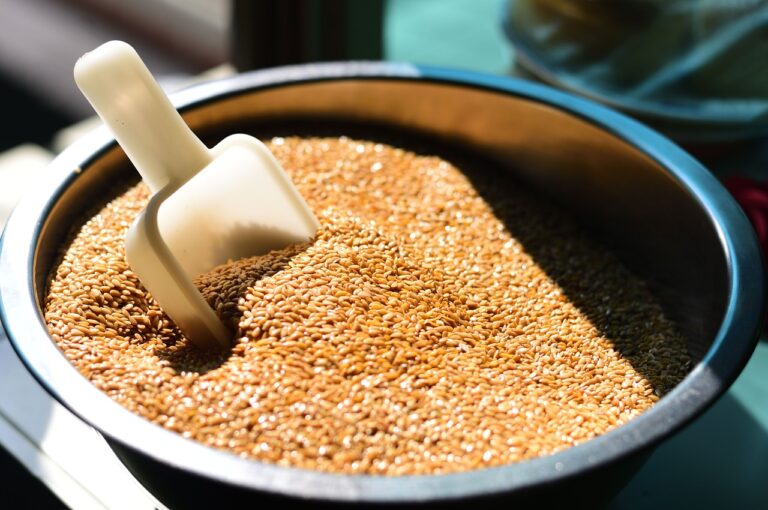Olive Oil Certification: What Consumers Should Know: 11xplay sign up, Laser247 com, World777 register
11xplay sign up, laser247 com, world777 register: Olive Oil Certification: What Consumers Should Know
Every time you walk down the aisles of your local grocery store, you’re faced with hundreds of choices when it comes to olive oil. With so many options available, it can be overwhelming to determine which one is the best choice for you and your family. One way to help narrow down your options is to look for olive oil certifications.
Certifications play a crucial role in ensuring that the olive oil you’re purchasing meets specific quality standards. But what exactly do these certifications mean, and how can they benefit you as a consumer? In this article, we’ll delve into the world of olive oil certifications and explore what consumers should know before making a purchase.
Understanding Olive Oil Certifications
When it comes to olive oil certifications, there are several different types that you may come across. These certifications are issued by various organizations and bodies, each with its own set of standards and criteria. Some of the most common certifications include:
1. Extra Virgin Olive Oil (EVOO) Certification: This certification is considered the highest quality standard for olive oil. To receive this certification, the oil must meet strict criteria, including low acidity levels and no chemical or sensory defects. EVOO is typically made using cold-pressed methods, which help preserve the oil’s natural flavors and nutrients.
2. Organic Certification: Organic olive oil is produced using organic farming practices, which means that no synthetic pesticides, fertilizers, or genetically modified organisms (GMOs) are used. This certification ensures that the oil is free from harmful chemicals and contaminants, making it a healthier choice for consumers.
3. Protected Designation of Origin (PDO) Certification: This certification is given to olive oils produced in specific regions that have unique characteristics and qualities. PDO oils are typically identified by their geographical origin, such as “Tuscan” or “Spanish,” and must meet strict production and quality standards to receive this certification.
4. Fair Trade Certification: Fair trade olive oil ensures that producers receive fair wages and working conditions for their labor. This certification promotes ethical and sustainable practices within the olive oil industry, helping to support small-scale farmers and communities.
Benefits of Choosing Certified Olive Oil
Choosing certified olive oil can offer several benefits to consumers. Some of the key advantages include:
1. Quality Assurance: Certified olive oil undergoes rigorous testing and inspection to ensure that it meets specific quality standards. By choosing certified oil, you can be confident that you’re getting a high-quality product that has been produced according to strict guidelines.
2. Health Benefits: Extra virgin olive oil is known for its numerous health benefits, including its high levels of antioxidants and anti-inflammatory properties. By selecting certified EVOO, you can enjoy these health benefits without worrying about any harmful additives or contaminants.
3. Ethical and Sustainable Production: Certifications such as organic and fair trade ensure that olive oil is produced using ethical and sustainable practices. By supporting certified products, you can help promote environmentally friendly and socially responsible methods within the industry.
4. Authenticity: With the rising prevalence of counterfeit olive oil on the market, certifications can help guarantee the authenticity of the product. By choosing certified oil, you can be sure that you’re getting the real deal and not a diluted or adulterated version.
Tips for Identifying Certified Olive Oil
When shopping for olive oil, here are some tips to help you identify certified products:
1. Look for Labels: Certified olive oils will typically display their certifications on the label. Look for logos or seals from recognized organizations such as the International Olive Council (IOC) or the USDA Organic certification.
2. Read the Fine Print: Take the time to read the label and product description carefully. Look for key terms such as “Extra Virgin,” “Organic,” or “PDO” to indicate that the oil has been certified according to specific standards.
3. Check the Origin: Pay attention to the origin of the olive oil. Oils produced in specific regions may have PDO certifications, indicating their unique qualities and characteristics.
4. Research Brands: Do some research on the brands you’re considering and look for information on their certifications and production methods. Reputable brands will often provide detailed information about their sourcing and quality standards.
FAQs About Olive Oil Certifications
1. What is the difference between extra virgin and regular olive oil?
Extra virgin olive oil is the highest grade of olive oil, produced using cold-pressed methods and meeting strict quality standards. Regular olive oil, on the other hand, is a lower grade oil that may be a blend of refined and virgin oils.
2. Are all organic olive oils certified?
Not all organic olive oils are certified, but certified organic oils are produced according to organic farming practices and have been inspected and verified by a certification body.
3. How can I check if an olive oil is authentic?
Look for certifications on the label, such as the IOC seal or USDA Organic logo. You can also check for information on the product’s origin and production methods to determine its authenticity.
4. Are all fair trade olive oils organic?
Not necessarily. While fair trade olive oils promote ethical and sustainable practices, they may not always be certified organic. It’s essential to look for both fair trade and organic certifications if you’re looking for a product that meets both standards.
5. Can I trust olive oil certifications from other countries?
Certifications from reputable organizations such as the IOC are generally trustworthy. However, it’s essential to research the certification body and standards to ensure that they meet your criteria for quality and authenticity.
Conclusion
Olive oil certifications play a crucial role in ensuring that consumers receive high-quality, authentic, and ethically produced products. By understanding the different types of certifications and their benefits, consumers can make informed choices when selecting olive oil for their cooking and culinary needs. Whether you’re looking for extra virgin, organic, or fair trade olive oil, certifications provide a valuable guide to help you navigate the vast array of options available on the market. Next time you’re shopping for olive oil, be sure to look for certifications to ensure that you’re getting the best quality product for you and your family.







